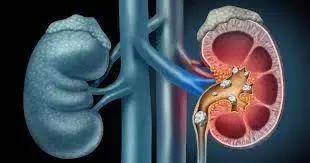- Home
- Medical news & Guidelines
- Anesthesiology
- Cardiology and CTVS
- Critical Care
- Dentistry
- Dermatology
- Diabetes and Endocrinology
- ENT
- Gastroenterology
- Medicine
- Nephrology
- Neurology
- Obstretics-Gynaecology
- Oncology
- Ophthalmology
- Orthopaedics
- Pediatrics-Neonatology
- Psychiatry
- Pulmonology
- Radiology
- Surgery
- Urology
- Laboratory Medicine
- Diet
- Nursing
- Paramedical
- Physiotherapy
- Health news
- Fact Check
- Bone Health Fact Check
- Brain Health Fact Check
- Cancer Related Fact Check
- Child Care Fact Check
- Dental and oral health fact check
- Diabetes and metabolic health fact check
- Diet and Nutrition Fact Check
- Eye and ENT Care Fact Check
- Fitness fact check
- Gut health fact check
- Heart health fact check
- Kidney health fact check
- Medical education fact check
- Men's health fact check
- Respiratory fact check
- Skin and hair care fact check
- Vaccine and Immunization fact check
- Women's health fact check
- AYUSH
- State News
- Andaman and Nicobar Islands
- Andhra Pradesh
- Arunachal Pradesh
- Assam
- Bihar
- Chandigarh
- Chattisgarh
- Dadra and Nagar Haveli
- Daman and Diu
- Delhi
- Goa
- Gujarat
- Haryana
- Himachal Pradesh
- Jammu & Kashmir
- Jharkhand
- Karnataka
- Kerala
- Ladakh
- Lakshadweep
- Madhya Pradesh
- Maharashtra
- Manipur
- Meghalaya
- Mizoram
- Nagaland
- Odisha
- Puducherry
- Punjab
- Rajasthan
- Sikkim
- Tamil Nadu
- Telangana
- Tripura
- Uttar Pradesh
- Uttrakhand
- West Bengal
- Medical Education
- Industry
Acupuncture effective adjunctive therapy for relieving acute renal colic due to Urolithiasis: JAMA

Acupuncture can be considered an optional adjunctive therapy in relieving acute renal colic due to Urolithiasis suggests a recent study published in the JAMA Network Open.
Renal colic is described as one of the worst types of pain, and adequate analgesia in the shortest possible time is of paramount importance.
A study was conducted to examine whether acupuncture could accelerate pain relief in patients with acute renal colic as adjunctive therapy to analgesics. This single-centre, sham-controlled, randomized clinical trial was conducted in an emergency department in China between March 2020 and September 2020. Participants with acute renal colic (visual analogue scale [VAS] score ≥4) due to urolithiasis were recruited. Data were analyzed from October 2020 to January 2022.
After diagnosis and randomization, all patients received 50 mg/2 mL of diclofenac sodium intramuscular injection immediately followed by 30-minute acupuncture or sham acupuncture. The primary outcome was the response rate at 10 minutes after needle manipulation, defined as the proportion of participants whose VAS score decreased by at least 50% from baseline. Secondary outcomes included response rates at 0, 5, 15, 20, 30, 45, and 60 minutes, rescue analgesia, and adverse events.
Results:
- A total of 115 participants were screened and 80 participants were enrolled, consisting of 40 per group.
- The response rates at 10 minutes were 77.5% (31 of 40) and 10.0% (4 of 40) in the acupuncture and sham acupuncture groups, respectively.
- The between-group differences were 67.5%
- The response rates of acupuncture were also significantly higher than sham acupuncture at 0, 5, 15, 20 and 30 minutes, whereas no significant difference was detected at 45 and 60 minutes.
- However, there was no difference between the 2 groups in rescue analgesia rate
- No adverse events occurred during the trial.
Thus, these findings suggest that acupuncture plus intramuscular injection of diclofenac is safe and provides fast and substantial pain relief for patients with renal colic compared with sham acupuncture in the emergency setting. However, no difference in rescue analgesia was found, possibly because of the ceiling effect caused by subsequent but robust analgesia of diclofenac. Acupuncture can be considered an optional adjunctive therapy in relieving acute renal colic.
Reference:
Tu J, Cao Y, Wang L, et al. Effect of Adjunctive Acupuncture on Pain Relief Among Emergency Department Patients With Acute Renal Colic Due to Urolithiasis: A Randomized Clinical Trial. JAMA Netw Open. 2022;5(8):e2225735. doi:10.1001/jamanetworkopen.2022.25735
Keywords:
Effect, Adjunctive, Acupuncture, Pain, Relief, Emergency, Department, Patients, Acute, Renal, Colic, Due, Urolithiasis, Jian-Feng Tu, Ying Cao, Li-Qiong Wang, Guang-Xia Shi, Lian-Cheng Jia, Bao-Li Liu, Wei-Hai Yao, Xiao-Lu Pei, Yan Cao, He-Wen Li, Shi-Yan Yan, Jing-Wen Yang, Zhi-Cheng Qu, Cun, JAMA Network Open
Dr. Shravani Dali has completed her BDS from Pravara institute of medical sciences, loni. Following which she extensively worked in the healthcare sector for 2+ years. She has been actively involved in writing blogs in field of health and wellness. Currently she is pursuing her Masters of public health-health administration from Tata institute of social sciences. She can be contacted at editorial@medicaldialogues.in.
Dr Kamal Kant Kohli-MBBS, DTCD- a chest specialist with more than 30 years of practice and a flair for writing clinical articles, Dr Kamal Kant Kohli joined Medical Dialogues as a Chief Editor of Medical News. Besides writing articles, as an editor, he proofreads and verifies all the medical content published on Medical Dialogues including those coming from journals, studies,medical conferences,guidelines etc. Email: drkohli@medicaldialogues.in. Contact no. 011-43720751


